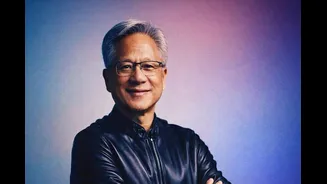Series Introduction
The Higher Education Department in Maharashtra had organized the 'Vikasit Bharat Sanvad' lecture series, which aimed to stimulate discussions on crucial
topics relevant to higher education and national development. Scheduled for September 17, 19, 23, 26, and 29, the sessions were live-streamed via Zoom, ensuring accessibility for students and teachers throughout Maharashtra. This approach enabled widespread participation and facilitated engagement with the material. The primary aim of the series was to generate a platform where students, educators, and policymakers could exchange ideas, in accordance with the vision of a developed India. The initiative hoped to foster a deeper understanding of national development and its relation to the field of education, as well as to promote a collaborative environment for shaping the future.
Key Participants
The lecture series featured a distinguished panel of speakers and academics, all experts in their respective fields. Notable figures included Vivek Ram Chaudhari, the former Chief of Air Staff; Lakshmi Puri, a retired Indian diplomat and former UN Assistant Secretary-General; and Professor Manish Dabhade. The list also included Aashish Chandorkar, a known author and public policy enthusiast, and Santishree Dhulipudi Pandit, who served as the Vice-chancellor of Jawaharlal Nehru University, New Delhi (JNU). The presence of such luminaries was expected to provide attendees with diverse perspectives and valuable insights into various facets of national development. The participation of these speakers was aimed at enriching the discussions and contributing to the overall goal of the series.
Opening Ceremony
The inauguration of the lecture series was presided over by Chandrakant Patil, the Minister of Higher and Technical Education. Inknath Naik, the Minister of State for Higher and Technical Education, also participated in the sessions. The presence of the ministers highlighted the significance of the initiative and underscored the government's commitment to enhancing higher education and fostering national progress. Senior officials, including B Venugopal Reddy, who held the position of Additional Chief Secretary, Higher and Technical Education Department, were also involved in guiding the proceedings. Their involvement ensured that the sessions were conducted efficiently and that the discussions were kept on track.
Platform Accessibility
The decision to broadcast the lecture series live through Zoom was a strategic move to maximize participation and offer equal access to all interested parties. This enabled students and teachers from across Maharashtra to attend the sessions without geographical restrictions. The virtual format allowed participants to join from the comfort of their homes or educational institutions, removing barriers to entry. The initiative effectively utilized technology to broaden the reach of the discussions and engage a wider audience. This approach was particularly important for encouraging interaction between participants and speakers, which enriched the learning experience.
Series Objectives
The primary objective of the 'Vikasit Bharat Sanvad' lecture series was to create a collaborative platform for dialogue among students, teachers, and policymakers. It sought to align with the vision of a developed India by addressing pertinent issues relating to higher education and nation-building. The initiative aimed to promote a deeper understanding of the interconnectedness between education and societal development. Through expert insights and interactive sessions, the lecture series aspired to encourage innovative thinking and formulate actionable strategies for advancing national progress. The overall goal was to empower participants with knowledge and perspectives necessary for contributing meaningfully to the country's evolution.












